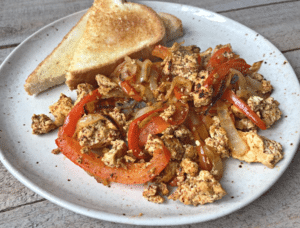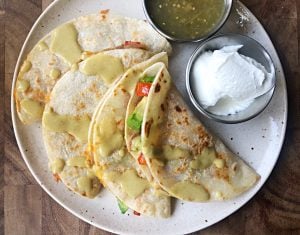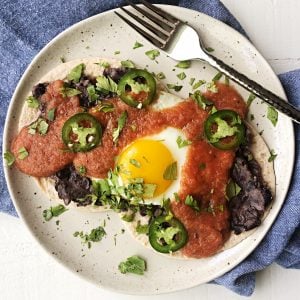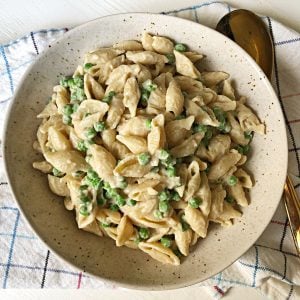Types of Vegetarians and Recipes to Incorporate into your Plant-Based Lifestyle
Are you currently a vegan or vegetarian or considering eating less animal protein? If so, this blog about vegetarian and vegan diets is for you!
There are a number of questions out there in regards to going vegan or vegetarian. There are also numerous types of vegetarians. It can seem complicated! I have heard this question several times, “can I be a healthy vegetarian?” To answer this question– if done right, you most certainly can! There are pros and cons to each different type of vegetarian diet as well as the vegan diet, and we’re here to address them and also educate on the nutritional differences between each diet.
First, understanding the various types of vegetarians and second, to make sure that your eating is ideal for your health and nutritional needs. People choose vegetarian for a wide variety of reasons. We will focus on six types of vegetarians. It is important to know that omitting foods can make it challenging to meet both macronutrient and micronutrient needs. Within each type of vegetarian diet, we will focus on nutrients that are challenging to meet nutritional needs and suggestions on how to meet those needs. Additionally, we will include some of our favorite recipes for vegetarians. Lastly, we will provide information on how to make sure your personalized nutrient needs are being met.
Different types of vegetarians:
1. Vegan
Those following a vegan diet do not consume any animal-based products. This includes meat, dairy, seafood, eggs, and sometimes even honey. So, you might be asking yourself…what do vegans eat and how do they get all the vitamins and minerals they need? A typical vegan diet is just like any other, just with substitutions for all these products.
- Plant based protein like tofu, tempeh, seitan, and beans are common sources of protein.
- To meet calcium and vitamin D requirements, non dairy fortified milks like almond, soy, rice, etc are consumed. Iron rich foods like soy, spinach, pumpkins seeds are consumed to meet iron needs.
- To meet fatty acid requirements (omega 3) lost from not consuming fish, alternatives like algae based omega- 3 supplements may be suggested.
- Vitamin B12 can be met by eating nutritional yeast, enriched cereals, and meat alternatives fortified with B12. A supplement may be necessary.
Take a look at these vegan recipes below:
Vegan mac and cheese
Vegan Bean Burger

Photo credit Kaitlin Eckstein
BBQ Tofu

Tofu Scramble

Photo by Kaitlin Eckstein
2. Lacto-Ovo-Vegetarian
Lacto-ovo-vegetarians are the most inclusive of the different types of vegetarians, as the only thing they do not consume is meat or seafood. They still eat egg and dairy and replace their meat with plant-based protein to fulfill protein requirements, additionally consuming iron rich foods. Vegetarians whether lacto-ovo or lacto only often meet fatty acids requirements (omega 3) lost from not consuming fish by adding in an alternative supplement like an algae based omega 3. Because animal products like eggs and dairy are consumed, those following this type of diet are likely meeting their vitamin B12 needs.
Grilled Vegetable Balsamic Sandwich

Muffin Tin Eggs

Photo by Kaitlin Eckstein
3. Lacto-vegetarian
Lacto-vegetarians cut out meat and seafood as well as egg from their diets. Similar to the lacto-ovo-vegetarians, meat is replaced with plant-based protein, and iron rich foods. An algae based omega 3 supplement can help ensure adequate omega 3s. Because dairy is consumed, those following this type of diet are likely meeting their vitamin B12 needs. However, nutritional yeast, enriched cereals, and meat alternatives fortified with B12 can also be consumed.
Refried Bean and Avocado Quesadilla

Buffalo Cauliflower

4. Ovo-vegetarian
Ovo-vegetarians restrict dairy and meat. Because of this, fortified dairy-free milk alternatives are consumed to obtain calcium and vitamin D in replace for milk. Meat is replaced with plant-based protein, and iron and fatty acid rich foods are consumed. An algae based omega 3 supplement can help ensure adequate omega 3s. Because eggs are consumed, those following this type of diet may be meeting their vitamin B12 needs. However, nutritional yeast, enriched cereals, and meat alternatives fortified with B12 can also be consumed.
Huevos Rancheros

Photo credit Kaitlin Eckstein
Acorn Squash Nests

5. Pescatarian
Pescatarians do not consume any land meat (chicken, turkey, cow, etc) and instead eat fish and seafood, and typically dairy and eggs as well. The benefits to this diet are that it has a much lower carbon footprint, is a great source of omega 3, and lowers the risk of heart disease. Some concerns are the increased level of mercury and other toxins in seafood, as well as meeting daily iron requirement. Increased mercury levels in seafood can be easily lowered through buying wild caught seafood instead of farm raised seafood. Iron requirements can also be easily met through eating iron-rich foods like shellfish, soy, spinach, pumpkin seeds, and so much more.
Air Fried Cod Nuggets

Sardines and Roasted Tomatoes on Toast

Crispy Rainbow Trout

6. Pollotarian
The only meat source pollotarians consume is chicken and fish. Because of this, the only thing pollotarians have to worry about consuming is iron, in which they consume iron rich foods like dark meat, shellfish, soy, spinach, pumpkin seeds, etc.
Veggie Chicken Nuggets

Hummus Crusted Chicken

Hummus crusted chicken
Can a vegetarian or vegan diet be right for you?
How can you make sure that you are getting the proper nutrition? Micronutrient testing is one of the of the ways that can certainly help you evaluate your nutritional needs and/or meeting with a registered dietitian. Learn more about vitamin and mineral testing.
When considering a major lifestyle change, such as becoming vegetarian or vegan, we encourage all of our clients to think about the sustainability of their changes and of course of the motivation behind it. It is important to note that going vegetarian or vegan for the goal of weight loss can be a slippery slope, and can lead to deficiencies in both energy intake and other nutrients. It is important to make sure that you are able to get adequate nutrition with these changes to your diet.
If you are worried about a loved one meeting the requirements for energy intake (calories), protein, or vitamins and minerals it is best to have an evaluation with a registered dietitian, and they can help you incorporate a more healthful vegetarian or vegan intake into your lifestyle. Find out more about meeting with an RD here.
Rebecca Bitzer loves to empower Registered Dietitian Nutritionists (RDNs) and their clients. Co-author of Welcome to the Rebelution: Seven steps to the nutrition counseling practice of your dreams and Taste the Sweet Rebellion: Rebel against dieting.




